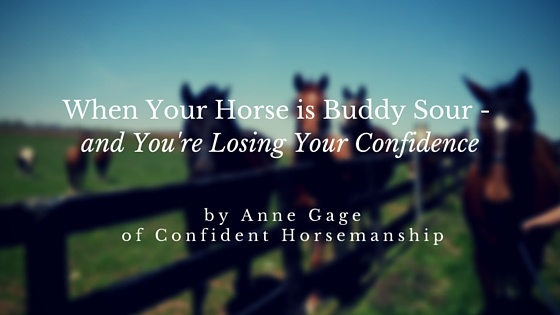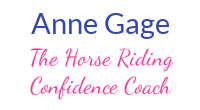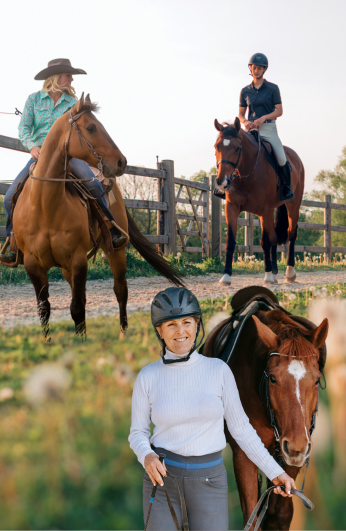
You love your horse. But when she panics at being separated from her paddock buddy or left alone in the barn, it shakes your confidence — and turns what should be joyful time together into something stressful.
Whether she’s calling out, refusing to move, or becoming dangerous when asked to leave the barn or trail alone… it’s upsetting. And if you’re honest, it’s made you anxious, too.
You try to stay calm, but your stomach knots. Your mind races. You start to question if you’re capable — or if it’s safe. And the more it happens, the less you want to ride.
Sound familiar?
You’re not alone — and your horse isn’t being “naughty” or “difficult.”
This is separation anxiety. And it can be helped.
What does it mean when a horse is barn sour or buddy sour?
Buddy sour. Barn sour. Herd bound. Separation anxiety.
Whatever term you’ve heard, it means your horse is anxious when she’s away from her herd, her paddock mates - or even just her favourite friend. And it shows up in different ways:
- Calling constantly
- Refusing to move forward
- Turning back toward the barn
- Spooking, bolting, rearing, or bucking
- Rushing on the trail as soon as you turn for home
Whether you’re leading, riding, or even just grooming her away from her friends, these behaviours can feel overwhelming - even dangerous. And they often get worse, not better, without the right approach.
If you've experienced any of these, you're not alone - and your horse isn’t being “naughty” or stubborn. She’s scared.
Why do horses become buddy sour?
This behaviour isn’t about being difficult. It’s about fear — and it’s deeply rooted in your horse’s instincts and past experiences.
Horses are prey animals who rely on the herd for safety. Being alone feels dangerous to them, especially if they’ve had:
- Abrupt weaning or early separation
- Harsh, rushed, or force-based training
- Poor handling or physical discomfort (e.g., saddle fit, dental pain)
- Negative past experiences while separated
When your horse is buddy sour, she’s not just being dramatic - she’s having a fear response. And that can make things feel overwhelming for both of you.
Signs of separation anxiety in horses
Not every horse shows fear in the same way. You might notice one or more of these common fear-based behaviours:
- Loud calling or constant vocalising
- Sweating or trembling — even with light work
- Refusing food or treats
- Pacing or fence walking
- Spooking or bolting under saddle or on the lead
- Weaving or stall walking
- Pawing, kicking out, or rearing
Any one of these behaviours is a sign that your horse has gone over her fear threshold - and she’s not able to learn or focus in that state.
Even subtle signs - like a tight jaw, pinched or flared nostrils - can signal early stress.
👉 Click here to download my free guide: 6 Subtle Signs Your Horse is Feeling Tense
It’ll help you catch the warning signs before anxiety turns into a full-blown meltdown.
How To Help Your Barn Sour Horse (without making it worse)
You might hear people say things like, “Just push through it” or “She has to learn.”
But forcing her into overwhelming situations will only increase her fear — and yours.
Instead, you need to rebuild trust, expand her comfort zone, and help her feel safe with you - step by step.
Here’s how.
1. Find Your Buddy Sour Horse's Comfort Zone
Start where she feels okay - even if it’s just a few feet from the paddock.
Take her just a little distance away. Watch her closely. As soon as she starts to show tension, calmly return to the “safe zone.” Stay there until she settles.
This builds her trust in you - and in the idea that leaving her buddy doesn’t mean danger.
2. Make That Place Feel Good
While she’s in her comfort zone, give her something positive:
- Groom her
- Scratch her favourite spot
- Feed her dinner or a favourite treat
This helps her associate time with you (and away from her buddy) with good feelings.
💡 If she’s too stressed to eat, you’ve gone too far. Bring her back.
3. Stretch Her Comfort Zone Gradually and Gently
Once she’s calm, take a few steps farther — and then return before she becomes anxious. Watch her body language carefully. If she’ll still take treats and stay soft, you’re on the right track.
If not, you’ve gone too far.
Important: Don’t rush. Keep sessions short (5–10 minutes) and end on a good note. You’re building trust — not testing her tolerance.
4. Be Patient. Be Present. Repeat.
This isn’t about dominance or obedience - it’s about emotional safety.
If your horse shows any signs of stress (even small ones), go back to where she feels okay. Help her settle. Then try again later - not as a punishment, but as a practice.
You’re showing her: “It’s safe to be with me.”
How Long Will It Take?
That depends on the horse. Every horse is different - just like us. Some settle in a few days. Others take weeks or longer.
The key is consistency and patience.
But one thing is certain - change comes through consistent, calm, positive experiences.
Your horse isn’t being defiant. She’s scared. And you can be the calm presence she needs to feel safe.
With time, patience, and the right approach, you’ll both feel more confident - and you’ll enjoy your time together again.
Your Horse Isn’t “Being Bad” - She’s Needs Your Help
When you see her behaviour for what it really is - fear - it changes everything.
She’s not trying to get out of work. She’s not “being a brat.” She’s scared. And she needs your help to feel safe.
When you approach it with compassion and understanding, you’re not just fixing a behavioural issue. You’re building trust, connection, and confidence - for both of you.
Want Help Spotting Tension Before It Escalates?
Sometimes, the signs of anxiety are subtle - and easy to miss until things spiral.
👉 Download your free guide: 6 Subtle Signs Your Horse is Feeling Tense
Learn to recognise early stress signals so you can step in before tension turns into trouble.
Remember This…
Your horse isn’t just barn sour.
She’s not being stubborn or bratty.
She’s anxious. She needs support.
And so do you.
You’re not failing. You’re not too old. And you’re not alone.
Want Support from Someone Who Gets It?
If you’re looking for expert guidance and a kind, encouraging community where it’s safe to ask questions, share wins, and rebuild your confidence...
Come join us in The Horse Riding Confidence Club.
Inside The Club, you’ll get:
✅ Ongoing support in bi-weekly online group coaching calls
✅ A growing library of confidence-building resources
✅ Encouragement from other riders who really understand
Whether you're just getting back in the saddle or wanting to be a better partner for your horse, you're welcome here.
👉 Click here to learn more and join The Horse Riding Confidence Club

